What is the Estrogen Pill?
The estrogen pill is a crucial component of hormone replacement therapy (HRT), primarily designed to alleviate the symptoms associated with menopause by supplementing the body’s estrogen hormone levels.
As women transition into menopause, their bodies produce significantly less estrogen, leading to various uncomfortable symptoms. The estrogen pill aims to replace this lost hormone, helping women manage these symptoms effectively.
Types of Estrogen in Pills
The estrogen pill typically contains conjugated estrogens, a mix of estrogen hormones derived from natural sources. These hormones play a vital role in regulating various bodily functions. The estrogen pill is available in various formulations, including:
Oral Tablets: Taken by mouth, these pills are the most common form of estrogen therapy.
Transdermal Patches: These patches release estrogen through the skin, providing a steady dose.
Vaginal Creams or Rings: Used primarily for localized relief from vaginal symptoms.
Using the Estrogen Pill Safely in Hormone Replacement Therapy
Before beginning any form of estrogen therapy, our team of healthcare experts will take you through a consultation that will cover your medical history, including any conditions that may affect the safety and efficacy of the treatment.
Menopausal hormone therapy, which includes the use of estrogen pills, requires careful consideration of individual health factors to ensure safety and efficacy.
Important Safety Considerations
Medical History: Inform our doctors about any medical conditions, such as:
Breast Cancer
Prostate Cancer
History of Blood Clots
Liver Disease
Dosage Instructions: Follow the prescribed dosage carefully to minimize the risk of side effects. Do not adjust the dose without consulting your doctor.
Monitoring Health: Regularly monitor your blood pressure and blood sugar levels while on the estrogen pill. It is also vital to report any unusual vaginal bleeding or pelvic pain to your doctor.

Benefits of the Estrogen Pill
Alleviating Menopausal Symptoms Like Hot Flashes
The primary benefits of the estrogen pill include alleviating various symptoms of menopause, such as:
Hot Flashes and Night Sweats: Estrogen therapy effectively reduces the frequency and intensity of hot flashes and night sweats, which are common complaints during menopause.
Vaginal Health: Many women experience vaginal dryness and discomfort during menopause. The estrogen pill can alleviate these symptoms, improving overall comfort and sexual health.
Bone Health: Estrogen plays a crucial role in maintaining bone density. Taking the estrogen pill can help prevent osteoporosis, a condition characterized by brittle bones that are more susceptible to fractures.
Mood and Mental Health: Some studies suggest that estrogen therapy may improve mood and alleviate symptoms of depression in menopausal women.
Cardiovascular Health: There is evidence to suggest that estrogen therapy may reduce the risk of colon cancer and potentially lower the risk of heart disease when initiated in younger postmenopausal women.
Risks and Side Effects
While the estrogen pill offers numerous benefits, it is essential to be aware of the potential risks and side effects associated with its use.
Common Side Effects
Nausea and Vomiting: Some women may experience gastrointestinal discomfort, including nausea and vomiting, particularly when starting the medication.
Breast Tenderness: Hormonal changes can lead to sensitivity or tenderness in the breasts.
Breast Pain: Some women may experience breast pain as a side effect of estrogen therapy.
Mood Changes: Fluctuations in hormone levels may lead to mood swings or changes in emotional well-being.
Weight Gain: Some women report weight gain as a side effect of hormone therapy.
Serious Risks Including Breast Cancer
Blood Clots: Estrogen therapy may increase the risk of blood clots, particularly in women who smoke, are overweight, or have a family history of clotting disorders.
Breast Cancer: Long-term use of estrogen, especially when combined with progestin, has been associated with an increased risk of breast cancer.
Gallbladder Disease: Women taking estrogen therapy may also face an increased risk of gallbladder disease.
Endometrial Cancer: Women who have not undergone a hysterectomy should be cautious, as estrogen therapy can increase the risk of endometrial cancer.

Interactions and Warnings
Drug Interactions
Estrogen therapy can interact with various medications, including:
Blood Thinners: Increased risk of bleeding.
Certain Antidepressants: May affect the efficacy of estrogen therapy.
Always inform your doctor about any medications, herbs, or supplements you are currently taking.
Contraindications
The estrogen pill is not suitable for women with:
History of Blood Clots
Breast or Endometrial Cancer
Liver Disease
Discuss your complete medical history with your healthcare provider to determine the safety of using the estrogen pill.

Alternatives to the Estrogen Pill
Exploring Other Options
For some women, taking an estrogen pill may not be the best choice due to personal preferences or medical reasons.
Fortunately, there are several alternative methods of estrogen therapy that can offer similar benefits, such as alleviating menopause symptoms and preventing osteoporosis, but with different risks and benefits.
Estrogen Patches: These adhesive patches are applied to the skin and release a steady dose of estrogen over time.
They are an excellent option for women who may forget to take a daily pill or who experience gastrointestinal side effects from oral estrogen. The steady release can also help maintain more consistent hormone levels.
Vaginal Estrogen: Available as creams, rings, or tablets, vaginal estrogen is applied directly to the vaginal area. This method is particularly effective for treating local symptoms like vaginal dryness and discomfort during intercourse.
It can also help reduce the risk of vaginal infections, providing targeted relief with potentially fewer systemic effects.
Estrogen Injections: Administered into the muscle or under the skin, estrogen injections offer a longer-lasting dose of estrogen compared to pills or patches. This method can be beneficial for women who have difficulty taking oral medications or who prefer less frequent dosing.
Hormone Replacement Therapy (HRT) Creams: These creams contain a combination of estrogen and progesterone and are applied to the skin. They offer a more natural alternative to traditional HRT pills or patches, allowing for absorption through the skin into the bloodstream.
Monitoring and Follow-Up
Importance of Ongoing Care
Regular monitoring and follow-up are crucial for women undergoing estrogen therapy, regardless of the form or type of therapy. At Rejuvenate HRT, we make your health a top priority.
Regular Check-ups: Routine visits with our expert team are essential to monitor your overall health and adjust your treatment plan as needed. These check-ups allow for early detection of any potential issues and ensure that the therapy is working effectively.

Frequently Asked Questions
What do estrogen pills do?
Estrogen pills help alleviate menopausal symptoms, maintain bone density, and support overall hormonal balance.
What does taking estrogen do to the female body?
Taking estrogen can alleviate menopausal symptoms, improve vaginal health, and impact mood and emotional well-being.
What happens after taking estrogen pills?
Women typically experience relief from menopausal symptoms, although side effects can occur.
What are the side effects of taking estrogen?
Side effects may include nausea, breast tenderness, mood changes, and an increased risk of serious health conditions.
Essential Guide to the Estrogen Pill Conclusion
The estrogen pill can effectively manage menopausal symptoms and improve quality of life. It is a great option for women that are ready to take their life back.
By working closely with our healthcare experts and maintaining open communication, we will help you to navigate your hormone therapy safely and effectively, leading to a healthier, more balanced life.


